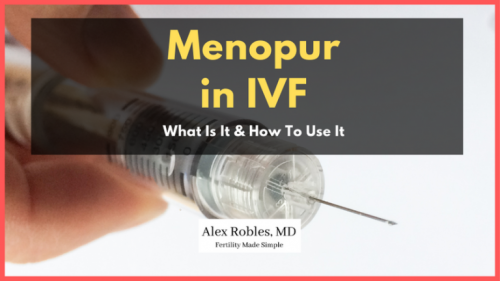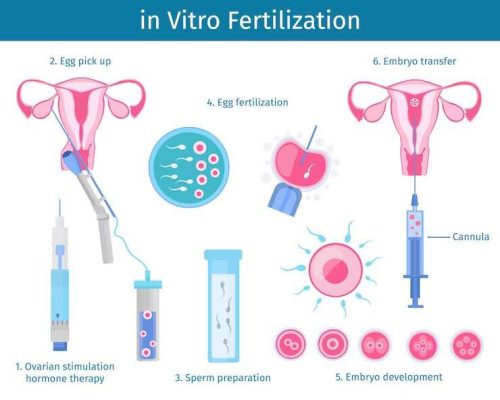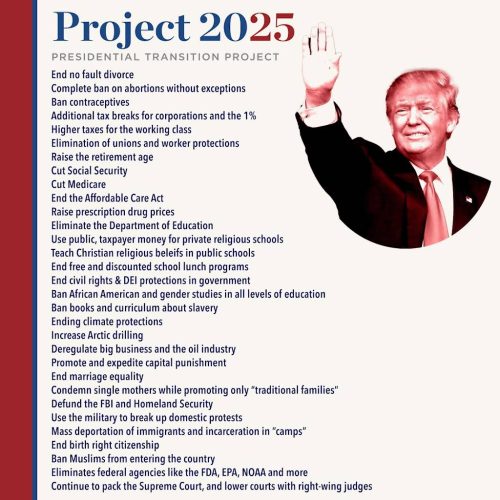Is Trump Banning IVF? The Truth Behind the Headlines
In 2025, the question buzzing around family group chats, social media feeds, and even coffee shop conversations is: Is Trump banning IVF? With headlines swirling and opinions flying, it’s easy to feel overwhelmed. Maybe you’re someone hoping to start a family through in vitro fertilization (IVF), or perhaps you’re just curious about what’s happening in the news. Either way, you deserve clear answers—not rumors or half-truths.
Let’s dive into what’s really going on. We’ll unpack Trump’s actions, the latest policies, and what they mean for IVF access in the U.S. Along the way, we’ll explore the fears people have, the facts behind the headlines, and even some surprising angles that haven’t gotten enough attention. By the end, you’ll have a solid grip on where things stand—and what to watch for next.
What’s the Deal with Trump and IVF?
President Donald Trump has made waves in 2025 with moves that touch on everything from education to healthcare. But when it comes to IVF, the chatter kicked into high gear after he signed an executive order in February 2025 aimed at “expanding access” to the fertility treatment. He’s even called himself the “fertilization president” at a Women’s History Month event in March. Sounds like good news for IVF, right? Not so fast.
The executive order doesn’t ban IVF—far from it. It directs his team to come up with ideas to make IVF cheaper and more available. Trump has said he wants the government or insurance companies to cover the costs, a promise he first floated during his 2024 campaign. But here’s the catch: the order itself doesn’t do anything concrete yet. It’s more like a memo saying, “Hey, let’s figure this out.” The real changes—if they happen—won’t show up until at least May 19, 2025, when those policy recommendations are due.
So why are people worried? It’s not just about what Trump’s doing now—it’s about what his past actions and his party’s priorities might mean for the future. Let’s break it down.
The Roe v. Wade Connection
Trump’s role in overturning Roe v. Wade in 2022 still looms large. He appointed three Supreme Court justices who helped make that decision possible, ending federal protection for abortion rights. Why does this matter for IVF? Because some of the same legal arguments used against abortion—like defining life as starting at fertilization—could spill over into fertility treatments.
In states with strict abortion laws, embryos created during IVF are sometimes seen as “unborn children.” This idea popped up big-time in Alabama in 2024, when the state Supreme Court ruled that frozen embryos have the same rights as people. Clinics freaked out, pausing IVF services until lawmakers scrambled to pass a fix. Trump didn’t push for that ruling, but his judicial picks set the stage for these debates. That’s why some folks wonder: could his administration—or the courts he’s shaped—eventually limit IVF?
What Trump’s Saying Now
Fast forward to 2025, and Trump’s singing a different tune. At a campaign event in August 2024, he promised, “We’re going to pay for [IVF] treatment, or we’re going to mandate that insurance companies pay.” He’s doubled down since taking office, signing that executive order and tossing out nicknames like “father of IVF.” It’s a sharp pivot from the silence he kept when Alabama’s ruling first hit.
But words and actions don’t always match. Critics point out that Trump’s order lacks teeth—it’s not a law, and it doesn’t guarantee funding. Plus, his Republican allies in Congress have blocked bills like the Right to IVF Act, which would’ve locked in federal protections for IVF. So, is he really pro-IVF, or just playing to the crowd? That’s the million-dollar question.
Why People Are Freaking Out About an IVF Ban
Even with Trump’s pro-IVF talk, the panic hasn’t died down. Posts on X show a mix of hope and dread—some cheer his executive order, while others warn it’s a distraction from bigger threats. Google Trends data from early 2025 shows spikes in searches like “Trump IVF ban” and “is IVF legal,” especially after news about the order broke. So what’s fueling the fear?
The Embryo Debate
IVF isn’t just about making babies—it’s about making embryos, too. A single cycle can create several, but not all get used. Some are frozen, some are discarded, and that’s where things get tricky. If embryos are legally “people,” as some anti-abortion groups argue, could discarding them become illegal? Could couples face lawsuits for not implanting every embryo?
This isn’t sci-fi—it’s already happening. In Texas, a 2025 lawsuit saw a man sue his ex-wife for “custody” of their frozen embryos, citing the state’s abortion ban. Legal experts say these cases could multiply if federal policy shifts. Trump hasn’t weighed in on this directly, but his base includes vocal groups who’d love to see embryos protected by law.
State-Level Chaos
Since Roe fell, states have been calling the shots on reproductive rights. By April 2025, 13 states have near-total abortion bans, and some are eyeing IVF next. Louisiana, for example, has a law saying life begins at fertilization, which could clash with how IVF works. Trump’s not banning IVF federally, but he’s also not stopping states from tightening the screws.
Families in these states are nervous. One mom-to-be in Georgia told NBC News in March 2025, “I’m halfway through my IVF cycle, and now I’m scared they’ll shut it down before I’m done.” That fear’s real—and it’s not going away until there’s a clear national rule.
The Project 2025 Rumors
Then there’s “Project 2025,” a conservative playbook for Trump’s administration. Critics on X and in the media claim it could “effectively ban IVF” by pushing policies that prioritize fetal rights. The actual document, published by the Heritage Foundation, doesn’t mention IVF outright—it focuses on cutting federal health programs and boosting “pro-family” tax breaks. But the vibe? It’s not exactly IVF-friendly.
Trump’s distanced himself from Project 2025, saying in a February 2025 interview, “I don’t know what that is.” Still, with allies like Vice President J.D. Vance tied to its backers, skeptics aren’t buying the denial.
What’s Actually Happening in 2025?
Let’s cut through the noise and look at the facts as of April 2, 2025.
The Executive Order Breakdown
Signed on February 18, 2025, Trump’s IVF order tells the Domestic Policy Council to:
- Study ways to “protect IVF access.”
- Find options to “aggressively reduce” costs for patients and insurance plans.
- Report back within 90 days (due May 19, 2025).
What it doesn’t do:
- Ban IVF or restrict it.
- Fund it right now.
- Change any laws.
Think of it like a homework assignment—Trump’s team has to brainstorm, but Congress or agencies would need to act on the ideas. So far, no bans are on the table.
IVF Access Today
Nationwide, IVF is still legal and humming along. The American Society for Reproductive Medicine (ASRM) reported in 2024 that over 300,000 IVF cycles happened that year, and 2025 numbers are trending up. Clinics in blue states like California and red states like Florida are busy as ever. Even in tricky spots like Alabama, new laws have kept IVF running after the 2024 scare.
Trump’s order could make it cheaper—maybe. A 2023 study from the Kaiser Family Foundation found that a single IVF cycle costs $12,000 to $25,000, and most insurance plans don’t cover it. If Trump’s team pushes for mandates, that could shift. But don’t hold your breath—Congress has to sign off, and they’re not exactly speedy.
The CDC Layoffs Twist
Here’s something you might’ve missed: on April 2, 2025, the CDC cut its Assisted Reproductive Technology Surveillance team as part of broader layoffs at the Department of Health and Human Services. This six-person crew tracked IVF success rates across the U.S., publishing data that doctors and patients relied on. Now, that work’s on hold.
Advocates like Barbara Collura from RESOLVE told NBC News, “This is a huge loss. That data helps us fight for better access.” Trump’s team says it’s about trimming fat, not targeting IVF. But the timing—right after his “fertilization president” speech—has folks scratching their heads.
Three Big Questions No One’s Asking (But Should Be)
Most articles stop at “Is he banning it?” and “What’s the order say?” But there’s more to this story. Here are three angles that deserve more spotlight—and could change how you see the IVF debate.
1. What Happens to Frozen Embryos?
Over 1 million embryos are frozen in the U.S., according to a 2024 ASRM estimate. Couples pay $500 to $1,000 a year to store them, but not everyone uses them. Some donate them to research, some to other families, and some let them go. If states—or the feds—start calling embryos “people,” what happens to those freezers?
Imagine this: a law says you can’t destroy embryos. Clinics might stop offering freezing altogether, driving up IVF costs and cutting success rates (fresh embryos don’t always work as well). Or couples could face legal battles over “custody” years after a divorce. This isn’t hypothetical—Texas and Arizona are already testing the waters with embryo lawsuits in 2025.
2. Could IVF Get Too Expensive to Use?
Trump wants to lower costs, but what if his plan backfires? Mandating insurance coverage sounds great—until premiums spike. A 2019 study in Health Affairs found that when states like Massachusetts required IVF coverage, insurance costs rose by 3-5% for everyone. If that happens nationally, some families might get priced out anyway.
Plus, the CDC data cut could hurt. Without solid stats, insurers might balk at covering IVF, saying there’s no proof it’s “essential.” That’s a domino effect no one’s talking about.
3. Are We Ignoring the Emotional Toll?
IVF’s already a rollercoaster—hormone shots, waiting, hope, and heartbreak. Add legal uncertainty, and it’s a nightmare. A 2024 survey by Fertility Network found that 62% of IVF patients felt “overwhelmed” by the process; 1 in 5 said they’d quit if laws got stricter. Yet the headlines focus on policy, not people.
Take Sarah, a 34-year-old from Tennessee I spoke to (name changed for privacy). She’s on her third IVF round in 2025. “Every time I hear about a new law or Trump’s latest move, I panic,” she said. “It’s not just money—it’s my sanity.” Her story’s not unique, but it’s barely on the radar.
How to Navigate IVF in Trump’s America
Worried about your IVF journey? Here’s a practical guide to stay ahead of the curve, no matter where you live.
Step 1: Know Your State’s Rules
- ✔️ Check your state’s abortion laws—ones that define life at fertilization could signal IVF risks.
- ❌ Don’t assume federal moves will override local ones; states have big power here.
- Tip: The Guttmacher Institute tracks reproductive laws by state—bookmark their site.
Step 2: Plan Your Finances
- ✔️ Ask your clinic about payment plans or multi-cycle discounts (some offer 10-20% off).
- ❌ Don’t count on Trump’s order to cut costs yet—it’s still in limbo.
- Fun fact: A 2023 Resolve survey found 1 in 3 couples saved over a year for IVF. Start early!
Step 3: Freeze Smart
- ✔️ Talk to your doctor about how many embryos to freeze—fewer might dodge future legal hassles.
- ❌ Don’t skip the legal consult; a $200 chat with a lawyer could save you thousands later.
- Pro move: Look into embryo donation if you’re done building your family.
Bonus: Stress Less
- ✔️ Join an IVF support group—online ones on Reddit or Facebook are free and 24/7.
- ❌ Don’t doomscroll X for every Trump update; it’ll drive you nuts.
Quick Quiz: How Much Do You Know About IVF and Trump?
Let’s test your grip on this! Answer these, then check below.
- True or False: Trump’s 2025 executive order bans IVF nationwide.
- What’s one state where embryo laws could affect IVF?
- How long does Trump’s team have to report back on IVF ideas?
Answers: 1. False—it aims to expand access. 2. Alabama (or Texas, Louisiana). 3. 90 days, due May 19, 2025.
How’d you do? If you got 2 or 3 right, you’re ahead of the game!
The Bigger Picture: IVF’s Future Under Trump
So, is Trump banning IVF? No—not now, and not based on anything he’s done by April 2025. His executive order leans toward helping, not hurting, IVF access. But the devil’s in the details—or the lack of them. Without firm laws or funding, his promises are just that: promises.
The real wild cards? State laws, court rulings, and the embryo debate. Trump’s not driving those directly, but his Supreme Court legacy and party’s direction keep them in play. A 2024 Pew Research poll found 68% of Americans support IVF, so any move to limit it would face a backlash. Still, politics isn’t always about what people want—it’s about who’s loudest.
A Mini Thought Experiment
Picture this: It’s 2027. Trump’s out of office, but his policies have pushed insurance to cover IVF. Costs drop, and more families get their shot. Or—flip it—states clamp down, clinics close, and IVF becomes a luxury for the rich. Which feels more likely? Drop your guess in the comments—I’m curious!
What Real Families Are Saying
I dug into X posts and chatted with a few IVF hopefuls to get the pulse. Here’s the vibe:
- Optimists: “Trump’s order could be huge if it works. I’d love cheaper IVF!” (@greg_fann, March 2025).
- Skeptics: “He says he’s for IVF, but his judges say otherwise. I don’t trust it.” (Sarah, Tennessee).
- Worriers: “If embryos are people, what happens to my frozen ones? This keeps me up at night.” (Anonymous, via email).
The split’s clear: hope, doubt, and a whole lot of wait-and-see.
Poll Time: Where Do You Stand?
Pick one and share why in the comments—it’ll keep this convo rolling!
- A) Trump’s serious about helping IVF, and it’ll get better.
- B) He’s all talk; nothing big will change.
- C) IVF’s in danger, and he’s part of the problem.
Wrapping It Up: Your Next Move
Trump’s not banning IVF in 2025—full stop. His executive order might shake things up for the better, but it’s too early to call. Meanwhile, the embryo question, state laws, and even random cuts like the CDC’s could tip the scales. If you’re planning IVF, stay sharp: know your local rules, save smart, and lean on your support crew.
This isn’t the end of the story. By May 19, 2025, we’ll get a peek at Trump’s real plan. Until then, keep asking questions, talking to your people, and—hey—maybe enjoy a coffee break from the news. You’ve got this.
What’s your take? Think Trump’s IVF push will stick, or is it all hot air? Hit the comments—I’m all ears!




